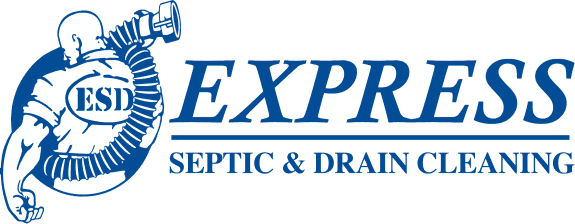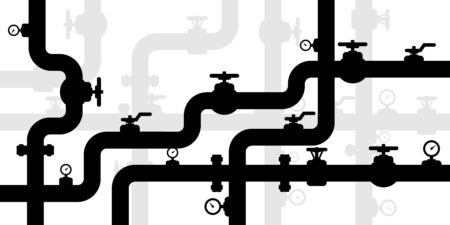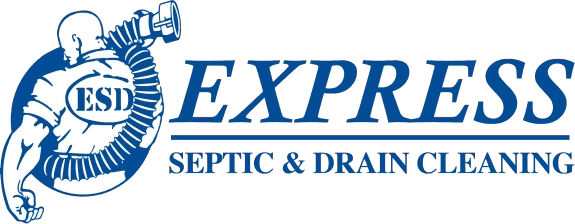Emergencies can occur at any time in your home or business. Emergency shut-off valves can help prevent accidents from happening in any setting. They serve as a safeguard against potential disasters by cutting off the flow of potentially dangerous substances in emergencies.
How an Emergency Shut-off Valve Works
Industrial activities can involve corrosive chemicals, extreme temperatures, and high-pressure conditions that may seem more than the valve can handle. However, shut-off valves are made from materials like stainless steel, which ensure they can withstand such harsh environments. This enhanced durability reduces the risk of system failure and ensures reliable operation in the event of an emergency.
When an emergency triggers the shut-off valve, it quickly closes to prevent the continued flow of the fluid it controls. For example, in an oil factory, the valve shuts down the flow of oil in case of a leak or spill. These valves are placed strategically for easy access.
Types of Emergency Shut-off Valves
Emergency shut-off valves come in different types, each designed for specific operating conditions. For example, manual shut-off valves are reliable but require human intervention to activate. Other types, including remote valves, can be controlled from a distance using a remote-control device. Here are more types of emergency shut-off valves.
1. Ball Valves
These valves are commonly used in industrial or commercial settings. A ball valve is a spherical ball with a hole through the center that controls the flow of substances when rotated. Ball valves are best known for their reliability and ease of use.
2. Gate Valves
Wedge-shaped to control the flow of substances by sealing them tight when closed, gate valves are suitable for settings that require a full flow or complete shut-off.
3. Butterfly Valve
A butterfly valve consists of a round disk or plate placed on a shaft in the center of a pipe to control the flow of substances. The disk is parallel to the direction of flow. When turned perpendicularly, this valve blocks the flow and shuts off the pipe. Lightweight butterfly valves are also preferable because of their simplicity.
4. Check Valve
Also called non-return valves, check valves prevent backflow or a reverse flow caused by a difference in pressure or pipe failure by only allowing substances to flow in one direction.
Why Are Emergency Shut-off Valves Crucial?
By shutting off the flow of dangerous materials in an emergency, emergency shut-off valves help prevent disasters like fires or explosions. While the installation and maintenance costs may be high, investing in high-quality emergency shut-off valves can prove cost-effective in the long run.
Here are some other benefits of shut-off valves.
1. Safety
When handling dangerous substances in industrial facilities, accidents pose a serious risk. For instance, an abrasive chemical can spill accidentally and put employees in danger. Shut-off valves ensure the safety of your employees by closing off the spill before it leaks more.
2. Prompt Response
Before you can register that an emergency has occurred, shut-off valves may have already started taking care of the problem. This enables emergency responders to focus on other things like containment and evacuation. This prompt response prevents further damage to your property by swiftly shutting off the valve and stopping the flow of the harmful substance.
3. Protects Your Equipment
Damage to your property can be a recurring issue if you do not have an emergency shut-off valve. When a corrosive substance leaks, it can damage your machinery, infrastructure, and other industrial equipment. You might incur heavy repair and replacement costs and suffer losses, and your staff’s well-being and health could be at risk. Emergency shut-off valves protect your equipment from any preventable damage.
4. Mitigates Pollution
Emergency shut-off valves play a role in preventing environmental pollution. Industries that deal with toxic substances always have a risk of accidental leaks or spills. These leaks can release contaminants that can pollute the air, soil, or water, which can have many consequences like contaminating the water supply or lowering air quality. Shut-off valves safeguard these natural resources and help reduce the risk of environmental pollution.
5. Prevents Disruptions
Some emergency shut-off valves can identify and handle hazardous situations before they can occur. Even in non-emergency situations, shut-off valves can isolate specific sections of a system without disrupting the entire process. For example, when water is leaking somewhere in a building, one would have to shut off the entire water supply system to fix it. An emergency valve that only shuts off the water supply of the area where the leak is can eliminate this problem. By isolating the specific location of the leak, it keeps the water supply to the rest of the building intact.
6. Peace of Mind
Knowing you have a functional emergency shut-off valve gives you peace of mind. You will not have to worry about emergencies escalating into disasters or potentially life-threatening scenarios. Your people and your property will be safe thanks to the proactive measures that emergency valves incorporate that allow them to identify and handle a problem effectively.
Regulatory Compliance
Various rules and regulatory bodies require emergency shut-off valves in homes and businesses that handle certain substances. Ultimately, safety should always be the priority in any setting. By following the regulations, you ensure that the emergency response systems are placed legally and safely. This can include coordinating with local authorities, communication, and evacuation procedures and putting various handling and maintenance rules in place to be sure your valves function as designed every time.
Maintaining Emergency Shut-off Valves
Maintaining your emergency shut-off valves is critical for their efficiency and functionality. Industries or manufacturing facilities dealing with extremely dangerous substances, such as nuclear plants, should schedule routine inspections with a reputable professional company to check for any signs of damage or malfunction. Repairs or replacements should be done on time to prevent further damage.
Implement emergency drills to test the shut-off valves and ensure they operate as intended. Make sure the settings are calibrated to avoid any mishaps during actual emergencies. You also need to clean and lubricate moving parts to prevent wear and tear from the friction. A well-maintained emergency shut-off valve can last longer and save you on the cost of constant repair or replacement.
Contact Us Today
At Express Septic & Drain Cleaning we have been offering septic tank services since 2006. Our company provides clean, fast, and professional services to all our customers. Our certified team receives constant training on new techniques and technology to ensure we deliver top-notch services. If you need septic tank installation, inspection, maintenance, repair, or replacement, we are your go-to choice. We also offer sewer and drain cleaning services because we understand the importance of a well-functioning drainage system.
Our focus will always be to take care of your needs promptly and ensure your property is kept neat and clean. This is backed up by the A+ rating we received from BBB and the positive reviews from satisfied customers. Having your tank maintained regularly ensures you will not suffer any health issues or incur constant repair costs. For more information, don’t hesitate to reach out to us at Express Septic & Drain Cleaning if you live in Nampa or Caldwell, ID and the surrounding areas.



